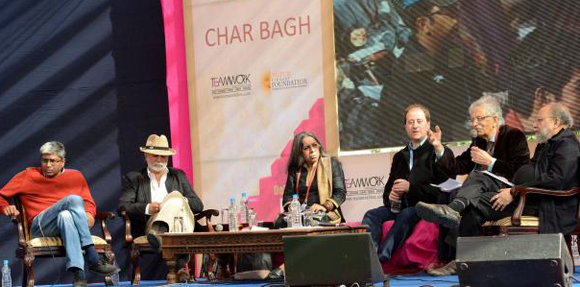"It is a fact that most of the corrupt come from OBCs and Scheduled Castes and now increasingly the Scheduled Tribes," he said participating in a session at the ongoing Jaipur Literature Festival.

Going further, he said, "I will give an example. One of the states with the least amount of corruption is state of West Bengal when the CPI(M) was there. And I must draw attention to the fact that in the last 100 years, nobody from OBC, SC and ST has come anywhere near to power. It is an absolutely clean state."
He was immediately challenged by one of the panelists Ashutosh, a TV journalist.
"This is the most bizarre statement I have heard. The Brahmins and the upper cast can do away with all the corruption but when a low caste person emulates the same thing it becomes so wrong. Such a statement is not right," he said.
Nandy's comments triggered a storm with BSP chief Mayawati and LJP leader Ram Vilas demanding registration of case under SC/ST Act against Nandy. Mayawati wanted him to be jailed immediately. Congress, BJP, JD(U), CPI as also the SC Commission Chairman P L Punia also condemned the remarks.
While seeking to clarify, Nandy made a flip flop saying he would apologise if he had been misunderstood.
However, when questioned further, he said "I don't apologise at all because I hold it very close to my heart. I was, in fact, supporting the cause of those who are marginalised and those who are in minority and those who are oppressed. I have spent all my life supporting their causes and will continue doing it."
He said he actually meant that if people from OBC, SC and ST indulge in corruption, it is "corruption indeed" while those from upper caste can go scotfree.
"This is not what I meant or what I wanted to say. This was what I actually said: I endorsed the statement of Tehelka editor Tarun Tejpal that corruption in India is an equaliser in our society. I do believe that zero corruption society in India, as I gave the example of Singapore, will be a despotic society," Nandy said in his clarification statement.
He maintained that he has spoken in favour of the down-trodden in the session on ‘Republic of Ideas’ at the Jaipur Literature Festival.
"I said in the talk that people like me... want to be corrupt, we can possibly send son to Harvard.... It will look like we are supporting talent. It won’t look corruption.
"But when Dalits, tribals and OBC are corrupt, it looks very corrupt indeed. However this second corruption equlalises," he said, adding "It gives them access to entitlements. And as long as this equation persists, I have hope for the republic (of India)."
He said he was sorry "if some have misunderstood (his comments). I am sorry if anyone is genuinely hurt because of misunderstanding."
However, he didn’t apologise for his statement, saying he has supported the communities all his life. "I don’t apologise at all because I was actually supporting the cause of minorities and oppressed people. I have supported them all my life."
As should be clear from my statement, there was neither any intention nor any attempt to hurt any community, he said.
Reacting sharply to the comments, Mayawati told reporters in Delhi that Rajasthan government should immediately send the author to jail for the comments by registering case under the SC/ST Act and other stringent sections of law.
Terming the remarks as "farthest from truth, condemnable, unfortunate and reflective of a casteist mindset", she demanded immediate apology from him with warning that "otherwise, people could even be compelled to come out on the roads in protest against these remarks."





Comments
Add new comment